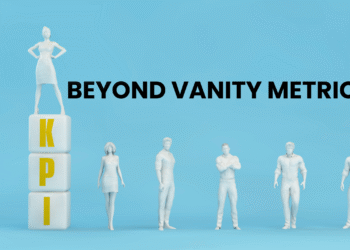In a continent where consumers are more connected than ever but also more cautious about how their personal information is handled, transparency in data use has become the marketing world’s new frontier. The rules of engagement have shifted: success is no longer just about who has the most data, but who can use it responsibly and convert trust into action.
Brands in Africa must lean on transparency to reach an audience increasingly sceptical of vague “we value your privacy” statements. The difference between conversion and abandonment often lies in whether a customer feels informed, respected, and in control.
Safaricom’s lesson in trust
Take Safaricom, Kenya’s telecom giant and the company behind M-Pesa, Africa’s most widely used mobile money platform. Handling millions of daily transactions requires not only robust technology but also consumer trust.
Rather than burying customers in jargon, Safaricom communicates clearly how data is being used, whether for fraud detection, personalising offers, or securing accounts. In recent years, the company has doubled down on consumer education campaigns that explain, in simple terms, why personal details like ID numbers or SIM registrations are necessary.
This transparency hasn’t slowed down adoption; in fact, it’s fueled it. By consistently showing users how their data powers safer, faster, and more relevant services, Safaricom turned what could have been a liability into a growth engine. Today, over 30 million Kenyans actively use M-Pesa, a testament to how trust-driven data strategies can unlock massive conversion.
 A new playbook for data
A new playbook for data
Across Africa, the data landscape is patchy. Some countries; like Nigeria, Kenya, and South Africa, have strengthened privacy laws modelled after GDPR, while others are still shaping regulations. This inconsistency makes it tempting for brands to play fast and loose. However, businesses that take the harder route of clear, transparent data practices enjoy stronger customer retention and brand loyalty.
Consumers are savvy, they know their data is valuable, and they want to see how you use it. If you hide it, you lose them. If you show it, you gain them.
In this sense, transparency is less about fine print and more about plain-language storytelling: showing customers the value exchange when they hand over their email, their shopping behaviour, or their clicks.
Building trust brick by brick
A transparent data strategy unfolds like building a meaningful relationship, where every interaction reinforces credibility rather than eroding it. The foundation starts with clarity at the point of collection, where companies move beyond generic requests like “Sign up for updates” to specific value propositions such as “Get weekly tips on boosting your business sales” that clearly articulate why the data matters to the customer. This honesty extends into giving users genuine choice and control, allowing them to select their preferences rather than being automatically opted into everything, a seemingly small design decision that signals fundamental respect for customer autonomy.
The relationship deepens when companies provide context around how collected data enhances the customer experience, making targeting transparent with explanations like “Because you searched for skincare, here are personalised offers” rather than relying on silent algorithmic recommendations that can feel invasive or manipulative. Most importantly, this transparency must be consistent across every touchpoint, threading through email communications, website interactions, mobile experiences, and in-store encounters rather than existing as an isolated campaign or compliance checkbox. When executed with this level of integration and authenticity, transparency transforms from a regulatory burden into a genuine competitive advantage that differentiates brands in an increasingly sceptical marketplace where trust has become the ultimate currency.
The conversion connection
Why does transparency convert? Because it lowers friction. African consumers who understand how their data is used are 34% more likely to complete a purchase compared to those left in the dark.
That’s not just good ethics; it’s good economics. In markets where scepticism runs high, such as fintech, e-commerce, and health tech, businesses that lead with transparency shorten the path from interest to action.
The road ahead
The challenge is clear: African businesses can no longer afford to treat data transparency as an afterthought. A credible data strategy requires businesses to live the values they claim.
“Data is not just numbers, it’s people,”. The more human you make the exchange, the more trust you earn and trust is what converts.
For brands ready to win in the new data-driven economy, transparency isn’t just a buzzword. It’s the key to building relationships that last, conversions that matter, and growth that sustains.
At Marketing Analytics Africa, we help businesses turn data into trust and trust into action. Learn more about building transparent, customer-first strategies that drive measurable impact.
Follow us for cutting-edge research, thought leadership, and real-world case studies. Subscribe to our newsletter for exclusive reports, webinars, and trend analyses. Partnerwith us to tell your brand’s data-driven success story across the continent.

 A new playbook for data
A new playbook for data


